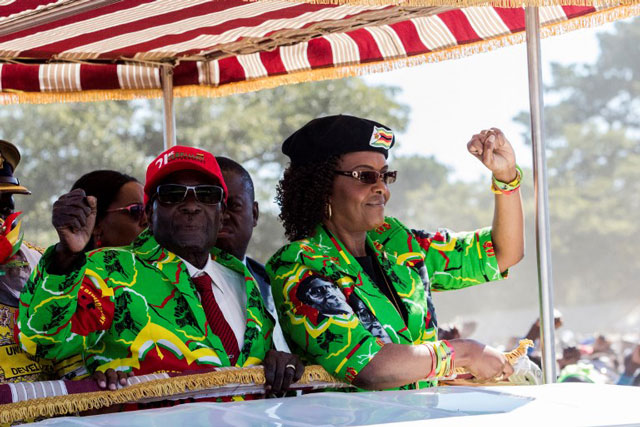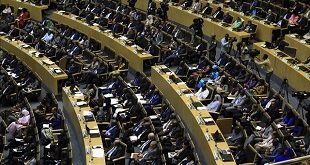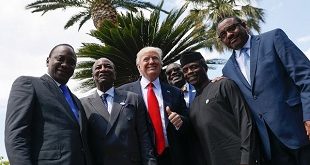
The African Union also has taken a hard line against unconstitutional changes of government. Its bylaws require it to impose sanctions against countries that have undergone a coup and bar them from participating in the organization’s activities.
Further complicating the situation is the question of who might succeed Mugabe.
Many of those close to the military are hoping that Mnangagwa would become the head of a transitional government if Mugabe resigned. That possibility is worrying for many Western observers, who consider Mnangagwa to be corrupt and abusive. He was sanctioned by the United States in 2003 as one of several officials “who undermine democratic processes and institutions in Zimbabwe.”
Acting U.S. Assistant Secretary of State for African Affairs Donald Yamamoto expressed support for Mugabe’s departure, telling Reuters:
“It’s a transition to a new era for Zimbabwe, that’s really what we’re hoping for,” Yamamoto said.
On Thursday, 115 civil society groups called on Mugabe to step down, and a range of opposition leaders, including Morgan Tsvangirai, once considered his main political rival, said it was time for Mugabe to go.
As Zimbabweans debated their country’s future in conversations and on messaging apps, Mandaza offered his own prediction: He expected Mugabe to resume the work of the presidency within days.
After its meeting on Thursday, the SADC said it was not ready to issue a conclusion about the Zimbabwe crisis. Even if the bloc decides to support Mugabe over the military, it’s possible its members won’t be willing to back up that decision, either by dispatching troops or using economic leverage. In 1998, it sent troops to Lesotho to quell a coup, but it has little experience intervening in larger nations such as Zimbabwe.
There is still some warmth between Mugabe’s ZANU-PF party, which fought for Zimbabwe’s independence from Britain and the end of white minority rule, and the other “liberation parties” of southern Africa, from South Africa’s African National Congress to Namibia’s SWAPO party.
Last year, South Africa’s president, Jacob Zuma, described Mugabe as among “the leaders of his generation who stood up, risked their own lives, defeated colonialism and contributed to the liberation of the region and Africa.”
Mugabe has ruled since the country became independent in 1980. In his early days, he was regarded as a hero by many both at home and abroad.
But his support crumbled over the past two decades as the country’s economy withered and the government was plagued by corruption scandals. Men such as Victor Matamadanda, who once fought alongside Mugabe for independence, gave up on their former comrade. Now, Matamadanda is the secretary general of the influential Zimbabwe National War Veterans Association, an anti-Mugabe group. He’s hopeful — despite the obstacles and delays — that the military takeover gives way to a post-Mugabe Zimbabwe.
“It’s going to be madness,” Matamadanda said, imagining a brighter future for the country once Mugabe and his inner circle are gone. “For years, they’ve treated this country like their own personal village.”
****
Source: The Washington Post
 The Independent Uganda: You get the Truth we Pay the Price
The Independent Uganda: You get the Truth we Pay the Price


